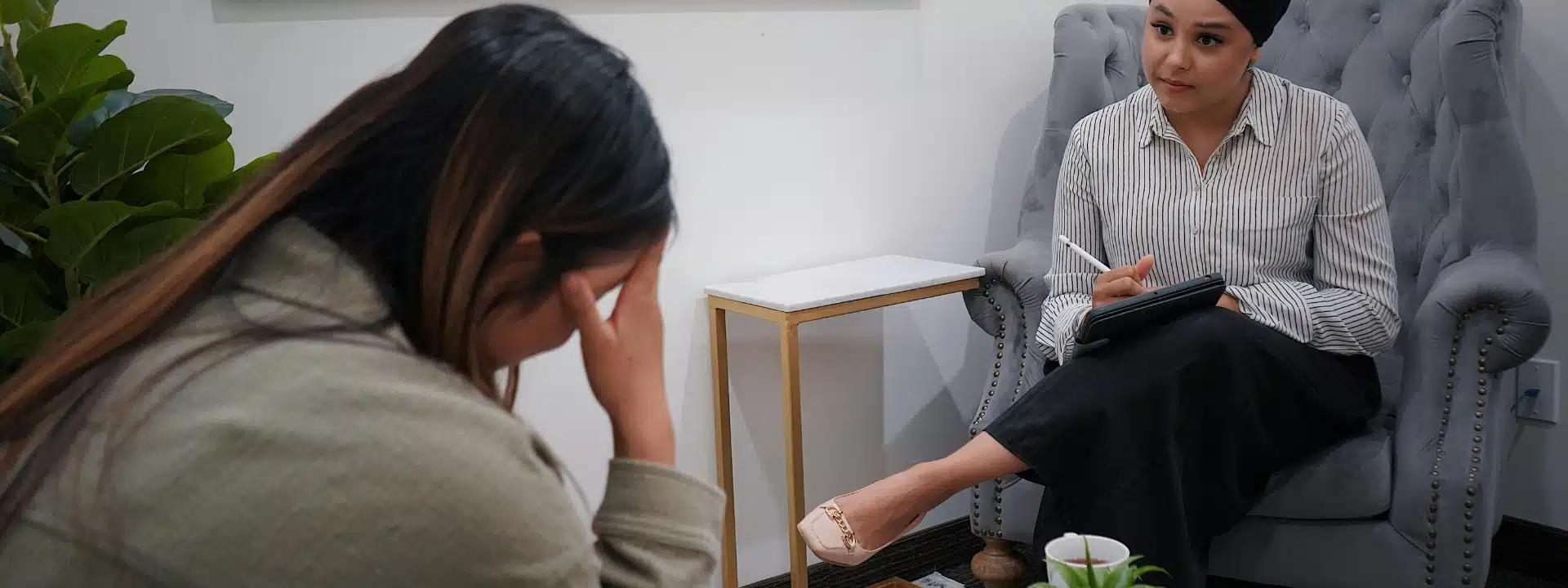What Is Family Therapy?
Bipolar disorder is a mental health condition that typically involves extreme mood swings. People with this mental illness may experience long bouts of depression followed by long bouts of high energy that have been characterized as mania or hypomania. People with the disease may benefit from medication and various evidence-based therapies. Although there is currently no known cure for bipolar disorder, the mental illness can be effectively managed with a combination of mental health treatment approaches, often including bipolar disorder family therapy treatment.
At Alter Behavioral Health™, we treat various mental health conditions, including bipolar disorder. During treatment for bipolar disorder, we individualize therapy to ensure that each patient’s needs are met. Our treatment facility offers many treatment approaches, including bipolar disorder family therapy, which involves the patient and their family support system. Our experienced clinicians have the expertise needed to treat all aspects of bipolar, helping patients and their families manage the condition as successfully as possible.
If you or a loved one has bipolar disorder, visit Alter Behavioral Health™ and let us provide you with the support you need to achieve stability and improved condition management. We rely on evidence-based therapies and best treatment practices to promote positive outcomes among patients. Patients can enjoy enhanced well-being and greater control over their lives and health with treatment.
Family therapy is often offered at mental health clinics to support the needs of patients and their families. Unlike conventional therapies that target just the patient, family therapy provides support and treatment for the entire family unit. During family-focused therapy for bipolar disorder, clinicians provide families with detailed information about their loved one’s condition, how it manifests in their symptoms, and how symptoms can be treated. Family members learn new ways to support their loved ones optimally. They also get help managing their own issues that may arise due to living with or caring for someone with a mental health condition.
At Alter Behavioral Health™, we customize family therapy because each family is unique, and its members have different needs. Bipolar disorder family therapy empowers patients and family members to cope with the condition more effectively. As a result of therapy, families will be able to identify bipolar disorder symptoms quickly and accurately and provide the help their loved one needs to contend with their condition successfully.
14 Signs of Bipolar Disorder That Family Members Can Recognize
During family therapy at Alter Behavioral Health™ treatment centers in California, our clinicians help family members identify bipolar disorder symptoms. Some of the most common bipolar symptoms that family members can recognize include:
- A depressed mood that lasts for weeks
- Loss of interest in people or activities formerly enjoyed
- Difficulty focusing or concentrating
- Experiencing great fatigue and loss of energy
- Feeling both physically and mentally drained
- Feeling hopeless
- Feeling suicidal
- High energy and increased activity
- Increase talkativeness
- Increased agitation
- Having racing thoughts
- Insomnia
- Easily distracted
- Demonstrating poor decision-making or reckless behavior
The symptoms exhibited will point to one or the other phases of bipolar disorder. Often, each phase can last for weeks or even months. Contending with extreme moods can be difficult for patients and their families. That’s why the Alter Behavioral Health™ network of mental health treatment centers in California offers family-focused therapy for bipolar disorder. Some medications and therapies can help patients and families more effectively manage condition symptoms.
What to Expect from Family-Focused Therapy for Bipolar Disorder
Some family members may feel apprehensive about what to expect from family-focused bipolar disorder treatment. At Alter Behavioral Health™, our family therapy clinicians teach families to spot signs of bipolar disorder and its most common symptoms. They also learn about bipolar treatment and how it can help their loved one effectively manage their mental health.
It’s not uncommon for some family members to struggle to support their loved ones best. A trained family therapist can help individual family members with their unique struggles. Family therapy aims to support the patient and all family members who engage with or care for the patient. By improving care strategies, therapists can help families and patients more successfully deal with bipolar disorder.
Patients and families can always expect empathetic care at Alter Behavioral Health™. Our goal is to help family members become better helpers and more effectively able to support their loved ones. We rely on treatments that are medically sanctioned and shown to benefit patients with bipolar disorder and their families. Families can learn about the latest treatments and best practices that may benefit their loved ones.

Other Components of Bipolar Disorder Treatment
Bipolar disorder is a complex mental health condition because it involves extremes in mood and behavior. During periods of depression, patients may experience debilitating fatigue and sadness. Many patients experience suicidal thoughts and may even attempt suicide. During the manic phase of the illness, patients may feel immense energy. However, they may find it difficult to control their energy and impulses. During this phase, patients may exhibit reckless behavior.
Consequently, clinicians aim to provide treatment that addresses the extreme highs and lows of the condition. Clinicians prescribe medications to help stabilize patients’ moods and to prevent the extremes that the condition is known for. In addition to medication, patients often attend various types of therapy, including cognitive behavioral therapy, to confront problematic patterns of thinking and behaving.
How Can Family Members Support a Loved One with Bipolar Disorder
If you have a loved one with bipolar disorder, consider attending family-focused therapy at Alter Behavioral Health™. You can show that you care for your loved one by attending family therapy sessions and learning about the disorder in detail. Therapists will help family members understand the disease and why their loved one feels, thinks, and acts the way they do. Family members can also partner with therapists to develop improved ways to cope with their caregiving issues and find strategies to support loved ones more effectively.
Bipolar disorder is a chronic condition, so learning to cope with it as a caregiver helps family members provide long-term support for their loved ones. Therapists can help families identify bipolar disorder symptoms so they can be treated more quickly. Improved symptom management can result in overall improved condition management.
Alter Behavioral Health™ Offers Family-Focused Therapy at Its California Treatment Centers
Alter Behavioral Health™ offers family-focused therapy in California. We know how much patients rely on their families, so we provide family members with the tools and resources they need for effective patient support. After meeting with treatment center therapists, family members invariably feel more empowered to support their loved ones. Our therapists teach them new strategies for supporting their loved ones, strategies based on best practices.
If you are struggling with a mental illness or your loved one is living with bipolar disorder, Alter Behavioral Health™ can help. Visit us, and let us help you achieve your recovery goals. At our California treatment centers, patients and families can expect individualized support designed to achieve improved patient care outcomes. Call us to schedule your bipolar disorder family therapy today.



